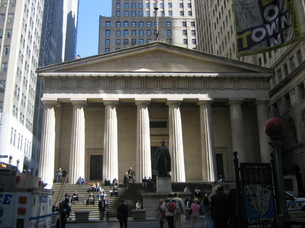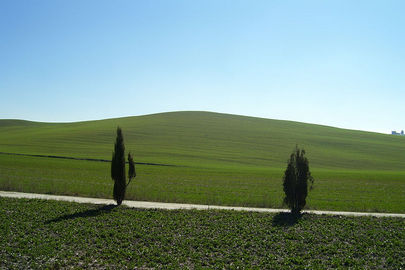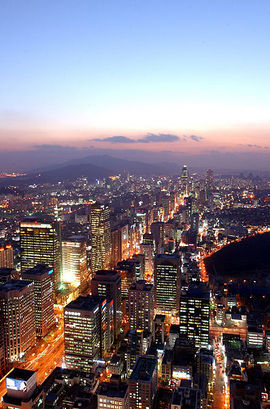Why Economic democracy is better.

Economic democracy is a concept that is way too under-reported. For good reason: It would be better than economic liberalism.
An egalitarian view of natural resources: Since this is a republic and a republic belongs to its people, all natural resources would owned by the people. Therefore basic access to resources (water, oil, electricity, food) should be provided to all by independent state-owned enterprises (source). At the same time, food production would be regionalized (farmers markets instead of Walmarts). Countries with state-owned electricity providers (France) and state-owned oil enterprises (Iran, Mexico) pay far less than we have to.
Capital and profit sharing. This is the heart of economic democracy. Employees would be the shareholders (source). That would guarantee that they have a say in the future of the company and it would be in their interest to innovate in order to revenues which would increase their wages. Read more
An egalitarian view of natural resources: Since this is a republic and a republic belongs to its people, all natural resources would owned by the people. Therefore basic access to resources (water, oil, electricity, food) should be provided to all by independent state-owned enterprises (source). At the same time, food production would be regionalized (farmers markets instead of Walmarts). Countries with state-owned electricity providers (France) and state-owned oil enterprises (Iran, Mexico) pay far less than we have to.
Capital and profit sharing. This is the heart of economic democracy. Employees would be the shareholders (source). That would guarantee that they have a say in the future of the company and it would be in their interest to innovate in order to revenues which would increase their wages. Read more
Overpopulation? No. Over-consumption and Greed!

The people who are most likely to fall for the overpopulation myth are concerned environmentalists. But, especially they should know a lot better that it is not a problem of "overpopulation". Not to mention that population growth has been steadily going down since the 70s and that the average woman has 2.6 children which is just above the replacement rate. On top of that, it's extremely simplistic to assume that our major problems would vanish if we reduced the world population. Nothing could be farther form the truth.
Cornucopians do not deny that a bigger world population could result in new challenges and we are not as naive to think that there is a "one-size fits all" solution to our growing world. Read more
Cornucopians do not deny that a bigger world population could result in new challenges and we are not as naive to think that there is a "one-size fits all" solution to our growing world. Read more
New category: Planet
The future of humankind ultimately depends on whether we manage to live with our environment and share the limited resources with the rest of our flora and fauna. Cornucopians realize that the only way for humanity to survive this century is to respond to environmental problems caused by humans and to make sustainable development the standard.
This category will cover topics such as global warming, endangered species, green living and most importantly: the oceans and access to water.
This category will cover topics such as global warming, endangered species, green living and most importantly: the oceans and access to water.
Cities: A Solution to Overpopulation.

A city is a large and permanent settlement containing complex systems for sanitation, utilities, land usage, housing, and transportation. We saw a fast rise in the number and sizes of cities beginning with the 20th century. By the end of the century, more than 50% of humankind is living in metropolitan areas. In industrialized countries it is 70%. Of course this fast rise in our urban population also brought many challenges: Cities in developing countries and newly-industrialized countries are struggling to catch up with the pace. The result are huge slums that have no access to electricity, sanitation, and even clean water! Examples are Rio de Janeiro, Lagos and Cairo. But we cannot deny the positive side of urbanization.
Read more
Read more
New category: Society
This category will deal with social problems on a local, continental and global scale. I deliberately ignore the national level since I think that this communitarian worldview is the cause why we have failed to tackle the many major problems we face today.
This part of the site will give you an insight into the cornucopian and cosmopolitan interpretations of our current problems and how we should solve them.
This part of the site will give you an insight into the cornucopian and cosmopolitan interpretations of our current problems and how we should solve them.
New category: Faith
I think there is no way to look at humankind without looking at faith which is the center of so many lives.
"There will be no peace among the nations without peace among the religions. There will be no peace among the religions without dialogue among the religions"
was formulated by Dr Hans Küng, a Professor of Ecumenical Theology and President of the Foundation for a Global Ethic. This section will give you an insight into as many faiths as possible. Knowing is the base of respect and understanding.
"There will be no peace among the nations without peace among the religions. There will be no peace among the religions without dialogue among the religions"
was formulated by Dr Hans Küng, a Professor of Ecumenical Theology and President of the Foundation for a Global Ethic. This section will give you an insight into as many faiths as possible. Knowing is the base of respect and understanding.
What's a Cornucopian?
A cornucopian is a futurist who believes that continued progress and provision of material items for mankind can be met by similarly continued advances in technology. Fundamentally they believe that there is enough matter and energy on the Earth to provide for the estimated peak population of about 9.22 billion in 2075.
This website is for all who embrace humankind, its diversity and believe that as long as we innovate and believe in ourselves, we will find solutions to problems that seem impossible.
The site just a few hours old and under construction so stay tuned.
This website is for all who embrace humankind, its diversity and believe that as long as we innovate and believe in ourselves, we will find solutions to problems that seem impossible.
The site just a few hours old and under construction so stay tuned.


